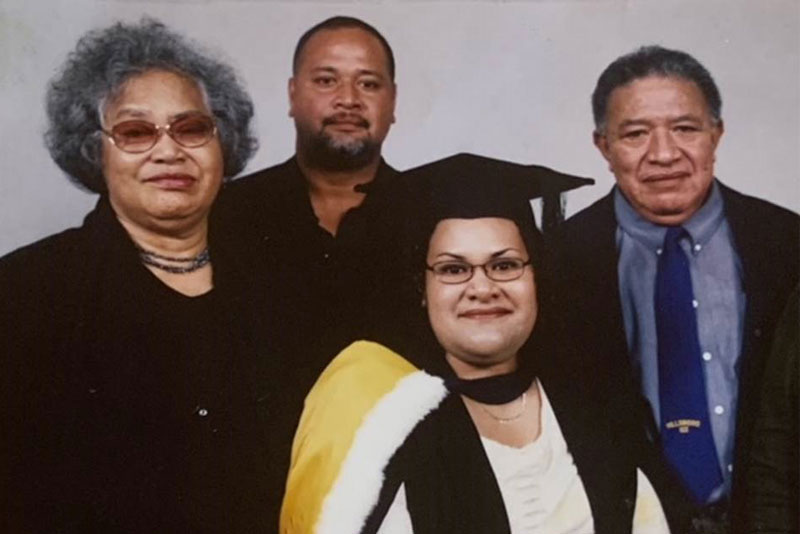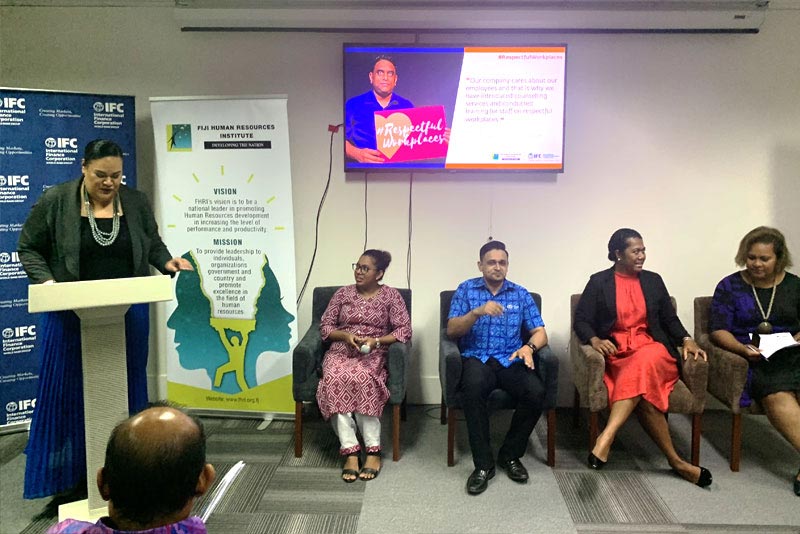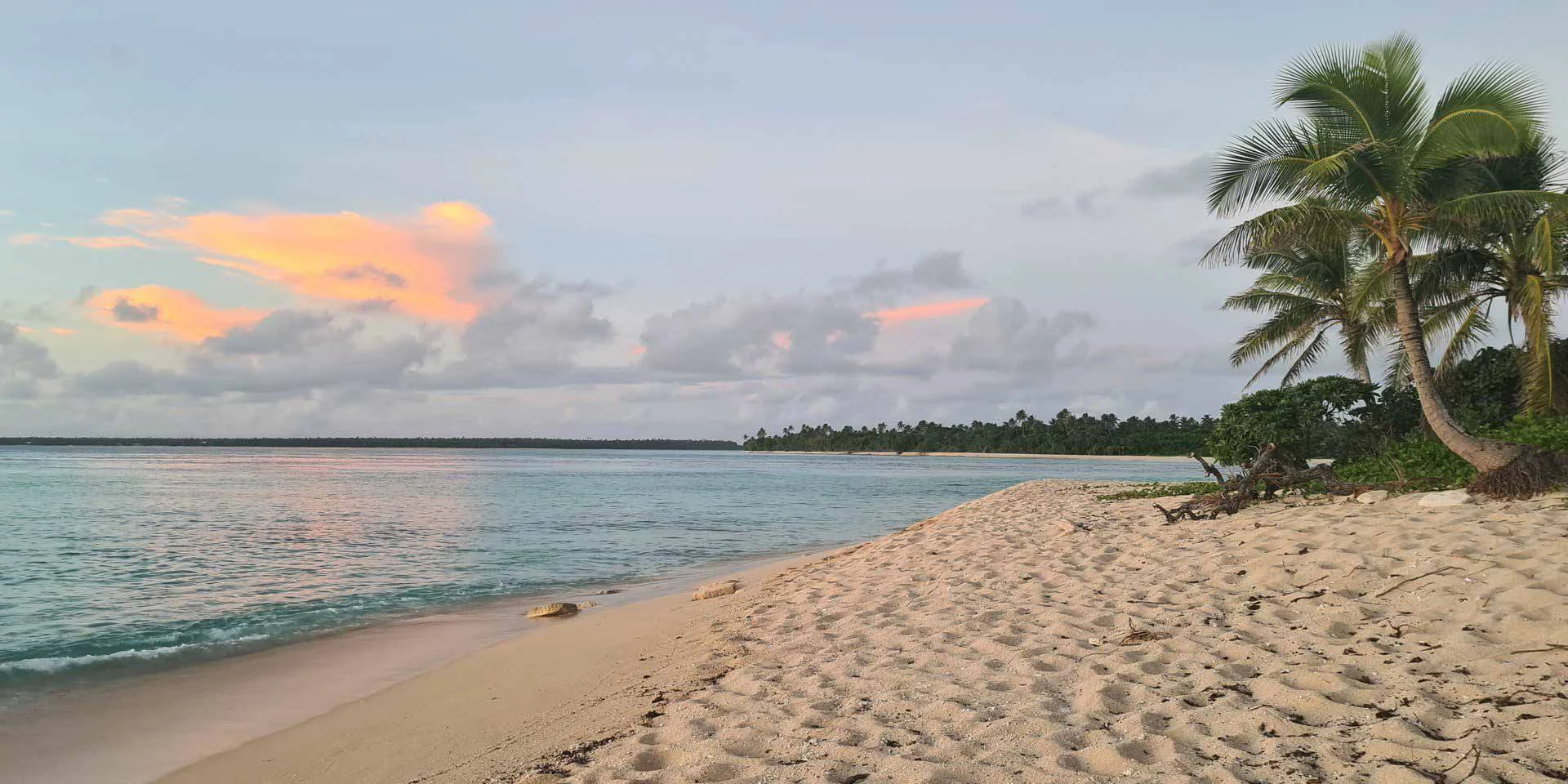By Tere González García
Lilika Fusimalohi’s career was shaped by her experiences growing up with activist parents in the Kingdom of Tonga, in the southwestern Pacific Ocean. Her father played a key role in championing the freedom of the press in the Pacific region, while her mother, as one of the founders of Tonga’s National Women’s Council, sought to advance women’s economic opportunities. Her parents have since passed on, but the values they instilled continue to inspire Fusimalohi to work for equal opportunity for all—women, men, and vulnerable groups.
Fusimalohi, Program Coordinator in IFC’s Gender and Economic Inclusion Group (GEIG) in Fiji, works with private sector companies to close economic gaps between women and men. She trains and advises businesses to implement family-friendly policies, as well as policies to address gender-based violence. She also helps conduct diagnostics at companies to identify their gender equality status, and design solutions that benefit both employers and employees.
In this interview, Fusimalohi discusses her early life in Tonga, the influence of her parents, and how her experiences motivated her to work for gender equality.

Lilika Fusimalohi with her parents and brother at her graduation. Photo: Courtesy of Lilika Fusimalohi
How did the journey in your life lead you to where you are today?
I was born and raised in Tonga. I am the youngest of five children and we shared our home with a large number of people. Many would come from outer islands for jobs and live with us—so it was communal living and we would spend most of the time outdoors. It was the 1980s and we had a farm to raise pigs and ducks and an orchard to grow our own crops, including mangoes, breadfruit, and bananas. The cash we generated was mainly used to pay for living expenses, such as electricity and education.
Although we lived a communal life, I’m grateful that my parents offered us the opportunities to make our own choices to live a different lifestyle. I chose a career in international development—so others can have a chance at a better life.
My work with GEIG promoting gender equality in workplaces in Fiji has provided me with a platform to contribute to creating workplaces where all employees can thrive, regardless of their gender.
What are the issues you most care about and how are they connected to your work at IFC?
I am interested in the intersection of gender equality, community development, and climate change. I was four years old when I first experienced a severe storm, a category-five cyclone. We were not prepared, so we lost much of the livestock and food crops that provided our livelihood. But we overcame this together as a community.
Fiji has faced a number of natural disasters since then, getting hit by several tropical cyclones every year. Women usually have fewer economic opportunities and the disasters exacerbate existing inequalities, including a spurt of domestic and sexual violence.
That’s one of the reasons I am working on a project that looks into how climate change affects women disproportionately. We will build on our women’s employment work with private sector clients and explore the business case for addressing the impact of climate events on women. Our goal is to identify solutions that firms can implement to address the disproportionate impact on women.

Fusimalohi speaking at a Rakorako event in Suva, Fiji. © IFC
Can you tell us more about the Rakorako initiative and the recent survey you conducted?
Our team recently led the Rakorako initiative in response to persistent gaps that prevent women’s equal participation in Fiji’s private sector. The peer-learning program brought together 28 companies to participate in a series of workshops to strengthen organizations’ policies and practices around childcare and workplace responses to domestic and sexual violence.
Most of the activities occurred during the COVID-19 crisis and devastating tropical cyclones, which worsened gender-based violence and childcare pressure on working parents. In a recent survey, we found Rakorako supported about 30 companies implement 65 policies, benefiting over 6,000 employees and helping create greater awareness of respectful and family-friendly workplaces. Rakorako, which means mutually respectful relations, helped most of the participating companies improve their corporate culture, and nearly half said it also facilitated business continuity during the pandemic’s first waves.
Before we sign off, what would you like to share with our colleagues?
I learned dancing as a child—it’s a traditional way of showing respect and appreciation in our community, while celebrating life. This is one of my favorite dance songs, by the late Queen Salote Tupou III, who used this performing art as a channel to foster harmony between clans. Hope you enjoy it as much as I do.
Published in December 2021
